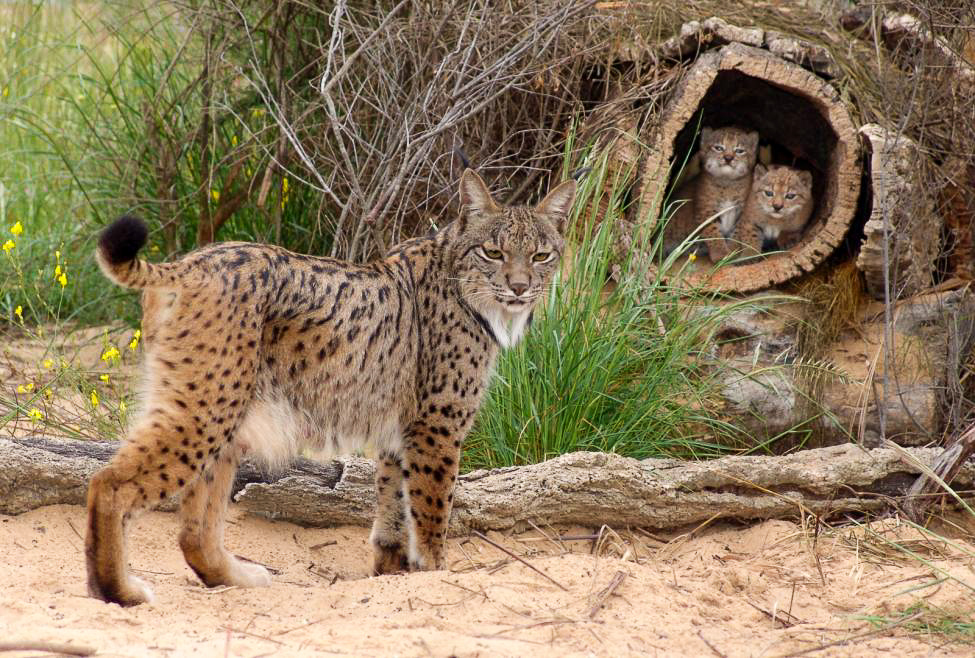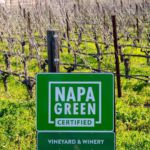
Watch video
Anna Brittain, executive director of Napa Green explains her relationship with natural cork ... and why it's the best!
Natural Cork is a Win for Planet and People
Cork is essential for great wine. If you look at all of the great wines of the world nothing ages the same way as a cork, and nothing has the lifespan of a cork,
Says Richie Allen, Director of Viticulture & Winemaking, at Napa Green Certified Rombauer Vineyards. Most wine drinkers understand that if you are opening a high-quality wine you will be popping a cork. But somewhere along the way confusion has arisen about the sustainability of cork.
When I think about cork I think about wine, of course, and I also think about quality and I think about stewardship.
- Anna Brittain, Executive Director, Napa Green

Wait, why am I looking at a cat? Cork oak forests spread across 5.4 million acres in the western Mediterranean, and have been recognized by the World Wildlife Fund as one of the 36 top biodiversity hotspots in the world, home to endangered species like the Iberian lynx, the Iberian imperial eagle, and the Barbary deer. In Portugal, the epicenter of corks forests, the trees have been protected since the 1200s. If a cork oak is cut down without permission from the forest service, there are criminal penalties, even if the trees are dead.
And far more than this is protected in these cork forests. The trees serve as a carbon sink. When considering the full life-cycle of a cork, from the carbon sequestered in the forest, to manufacturing and distribution, cork remains carbon negative, or climate positive. 12,000 natural corks offsets as much CO2e emissions as 83 solar panels. In Portugal, the CO2 stored in cork oak forests is equal to 5% of national emissions.
Also protected is a way of life. 95% of cork forests are owned by families or small to medium companies. The method of harvesting cork bark has been handed down from generation to generation, with cork harvesting being the best paid agricultural job in the world. In rural communities where harvesting is a specialty, often 3-5 people in each family work together to harvest the cork bark.
So, what about those screw caps and synthetic corks? Most metal screw caps have a plastic liner and there are no recycling facilities in the U.S. that can recycle them. They all end up in landfill. Similarly, plastic closures, made from fossil fuels, are not biodegradable and are rarely recycled. Significantly more energy, water, waste generation, and greenhouse gas emissions are required to make these wine closures.
One area where we can all do better is cork recycling. Cork is absolutely recyclable, but we have to get those little corks to the recycling groups like ReCORK and Cork ReHarvest. Many communities have convenient dropoff locations. Here is Napa we bring them to our local Whole Foods. By this time next year, you could be wearing shoes with soles made from your corks.
Read Forbes Story: Cork And The Environment: Recycling, Biodiversity And The Contribution To Fight Global Warming
Going to a cork forest is one of the most exciting things I’ve ever done as a winemaker. This sense of history and time, generation after generation, the trees just keep giving and giving and giving.
- Richie Allen, Director of Viticulture & Winemaking, Rombauer Vineyards
I've been at this for 30 years and this is the best, most well-thought-out program I've ever seen.
- Yvon Chouinard, Environmentalist and Founder of Patagonia


